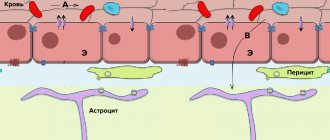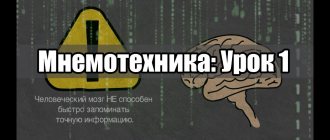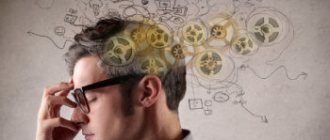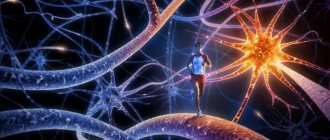The brain, like muscles, can adapt to stress. And those things that you do often become routine. How to train him? The main rule is to give the brain unusual, new information. Thanks to this, new neural connections will be formed, and the brain will develop. Here are some exercises you can use to do this.
Sweet doping: how sugar affects brain function
Change your image and make a rearrangement
The brain gets used to the environment - the arrangement of furniture in the house and objects on the desktop, the reflection in the mirror and a set of familiar clothes. It is not necessary to carry out major repairs and radically change the appearance. It is enough, for example, to periodically make small redevelopments and, in order to “shake up” perceptions, try new things in clothes.
Photo: istockphoto.com
Is there insurance against memory impairment? How can I reduce the risk?
It is necessary to consult a general practitioner as soon as you feel unwell. If you have not done so, make an appointment after recovery, even if you feel well. But it is especially important to consult a doctor if you have the following symptoms after suffering from coronavirus: depression, apathy, sweating, weakness, fatigue, shortness of breath, tachycardia, frequent urination or urinary retention, heaviness in the right side.
Comment by the chief physician of the Family Doctor clinic, A. A. Azarov:
“At the moment, most of the pathological manifestations of the new coronavirus infection, not to mention the long-term consequences, are under study. If memory impairment after suffering from the new coronavirus infection Covid-19 worsens the quality of life, we recommend contacting specialized specialists for a face-to-face consultation: a neurologist, a psychiatrist to assess the state of memory, select adequate therapy if necessary, as well as dynamic monitoring.”
Engage your sense of smell
Have you been using the same perfume for years? It's time to change that! A good way to get your brain working is to rid it of the “aromatic” routine. The sense of smell is an important channel for the perception of reality. You also need to periodically add something unusual to it, be it new perfumes or spices when cooking.
Biohacking: is it possible to hack your body and gain eternal youth?
What is short-term memory
A person's short-term memory is similar to a computer's RAM - it is used in current work, and is completely erased when the computer is turned off. For a computer, the issue of increasing RAM is solved quite simply. We are adding a new chip. This method is not suitable for humans, however, there are techniques that lead to improved memory and its performance.
Short-term memory allows you to remember something after a fairly short period of time, from a few seconds to a minute, without repetition. With enough repetition, objects move from short-term memory to long-term memory.
The amount of information stored in such memory is quite limited. Research shows that it usually ranges from 4 to 9 objects, with an average of 5-7.
This allows you, for example, to compare prices in a store or dial a phone number by looking at or hearing it once. This type of memory is quite unstable.
Use other routes
Home – work – home. This route may remain unchanged for years. The result is that the brain goes through it on autopilot, not getting involved in the process at all. Try to get to the office in different ways and thoroughly explore the area where you live, walk where you have not been before. And before traveling to a new place, carefully study the maps in advance and try to get to the desired point without looking at the map application and navigator tips.
Photo: istockphoto.com
Memory training in older people
In old age, brain function noticeably weakens. This is due to the fact that the ability of nerve cells to respond to external and internal stimuli decreases, as a result of which brain activity decreases. In addition to deterioration in memory, there is also a loss of concentration. But this does not mean that these processes are a consequence of the disease, or that the situation cannot be improved. Let's look at ways to train memory in older people:
- Collect puzzles . Choose the picture you like and go ahead! Just don't start with large and complex ones, because they may be difficult to assemble, and you will get tired of such an activity.
- Before you go to bed, sort through the events of your day : remember the things you did, who you met, what you talked about. The more detail you remember, the better.
- Come up with 5-10 words for each letter of the alphabet . This exercise will take time, but at the end of it you will feel the active work of your brain!
- Play board games - chess or checkers. Pay special attention to concentration when coming up with moves. Solve crosswords, scanwords. By playing for 30 minutes every day, you will activate your attention and memory process.
Read color words
The names of the colors are written on the picture for this exercise (the name and color of the word do not match). You need to name the color, and not read the text. This is more complicated than it might seem at first glance. Try it!
How to develop quick thinking in football? Improving skills for progressive play
Veronica
I always had a problem remembering a phone number. Even while using a landline phone, I kept turning to my notepad so as not to confuse the numbers. With the development of technology and the advent of 11-digit numbers, I could not hold them in my head for a second. At the same time, my friend Mikhail, if necessary, could memorize them for several hours.
Once I asked Misha why it was so easy for him to remember long sets of numbers. He immediately said that he had to develop this skill, and now also maintain it.
Mikhail asked me if I had tried to break the number down into its component parts to make it easier to remember. Having received an affirmative answer, he told me how to improve short-term memory and recommended exercises.
Purpose and benefits
The memorization process follows a pattern. First, an image is clearly imprinted and stored for 0.1 - 0.5 seconds. Then, particularly important elements are selected from the acquired knowledge and entered into a short-term database. Without repeating material, data is stored for no more than 30 seconds.
As Haruki Murakami says: “Memory and thoughts age just like people.”
There are types of short-term memory, depending on the source of information:
- tactile;
- taste;
- olfactory;
- visual;
- auditory
People receive basic information through their eyes and ears. Therefore, the last 2 types are the most valuable, and they are the ones that need to be developed.
The amount of information that is stored for a short period of time is limited. A child is able to remember 5-7 elements, an adult 7-9. But it is necessary to understand that this value is purely individual and directly depends on genetic qualities.
Unnecessary information is immediately erased, important information is transferred to operative or long-term memory. The main advantage of short-term memorization is that unnecessary information is filtered out and only the essence is retained.
This allows you to save time, remember what is really important, and avoid information overload - a source of anxiety and stress. Training means teaching the brain to focus on a task and not overload it.
Exercises
There are different ways to develop short-term memory. They are all equally useful. But you should remember that only regular training gives results. They must be done every day for half an hour.
"Fibonacci Technique"
This is a mathematical series of numbers, where each subsequent digit is the sum of the previous two. If you lose count or forget the sequence, start again. Example 1+1=2, 2+1=3, 3+2=05, 5+3=8, 8+5=13, 13+8=21... Having calculated the sequence, they pronounce it to themselves.
Mnemonic exercise "20"
The task consists of 20 incoherent words. You need someone to write them for you. Task: remember the words in order in 1 minute, and then write down what you remember on a piece of paper. The result is assessed according to the following criteria: accuracy of reproduction in order, number of forgotten words.
An example of a task on how to train short-term memory:
- Job;
- book;
- improvisation;
- mug;
- athlete;
- hand;
- equality;
- sofa;
- subtitle;
- pun;
- a tear;
- garden;
- telephone;
- volcano;
- herring;
- chandelier;
- mayor;
- knee pad;
- magic;
- Sun.
By the way, read this article too Why Lecithin is so important for the brain and nervous system
There are no rules for memorization: it is convenient to use the associative method - use it, it is convenient to re-read the words for the whole minute - re-read it, it is convenient to record it on a voice recorder and listen - do this. It is necessary to develop the form of perception that is closer. The main thing is to do it within the allotted time.
"Paragraph"
A popular exercise for group psychological training on the topic of how to improve short-term memory. But the method can also be used for individual training. You'll need a book. It is opened on any page and a paragraph is read out. Task: remember every word.
If the lesson is conducted in a group, a leader is appointed. After reading, he waits patiently for the group to remember the entire text. If difficulties arise, he prompts you with another word. If the exercise is performed independently, then you must first make an effort to remember the text, and only then peek.
“She brought it to her lips... and at the very last moment, shuddering with her whole body, she leaned forward and hastily poured the contents into a pot of fern. And then she sat down and looked at him arrogantly.”
"10 items"
Short-term memory training is closely related to visual perception. Develop it effectively with this exercise. 10 items are laid out on the table. Within 1 minute you need to remember their location, shape, color, etc. After the specified time has passed, the objects are covered with dark material. Task: tell everything that you remember about the objects.
You can start with simple objects, but each time you need to complicate the task. To do this, take parts of complex shapes. Ultimately, you can try to describe drawings on a carpet, paintings, pictures from books. If a description of some artistic element is intended, then one position is enough.
"Emotional outburst"
It is believed that this exercise is more aimed at developing RAM, which is responsible for storing information until a certain time. But without large short-term storage, the information simply will not reach the “operational department”. Therefore, the effectiveness of the technique is high.
The point is that information should be accompanied by emotions. Their absence is one of the main reasons for forgetfulness. For example, tomorrow you need to get a haircut. Any person does what is important to him at the moment. Therefore, everyone says to themselves phrases like: “the day after tomorrow there’s a presentation of the project, if I don’t get my hair cut tomorrow, I’ll look like a monkey.”
We all look for reasons to get things done on time. Exercise allows you to evoke emotions when natural reasons for them are not enough. You need to come up with some kind of horror story.
What happens if you don't get a haircut tomorrow? Several options are possible:
- I won’t be able to wash my hair and lice will appear.
- When I pass by the parking lot, hair will fall into the window of one of the cars. The driver will squeeze them with glass, and I will run after the car throughout the city.
- The wind will blow, and my hair will carry me into some Through the Looking Glass. Then look for a way out of this wonderland.
By the way, read this article too: Milk with mineral water for coughs
The examples are fantastic, but effective even in this vein. The scarier (or funnier?) the story, the better you remember what needs to be done.
Methods for restoring the situation and drawing up self-portraits
A number of techniques that help both improve short-term memory and develop attention are aimed at reproducing recent events. The most popular of these was the modified Pythagorean technique. She suggests remembering all the events of the day in great detail before going to bed.
It is necessary to remember your first thoughts after waking up, actions after getting out of bed. At the same time, the chronological order is maintained - you cannot jump from morning events to afternoon or evening ones. There is one rule: the brighter the images of memories, the more effective the exercise.
Whether you use this technique or not, you should try other exercises from this group throughout the day.
For example:
- Remember right now what you did before reading this article. Let's say you were washing the dishes. Was it a serving container or a cooktop container? What were more: plates or spoons? What color sponge (rag) was used?
- When saying goodbye to someone you don’t know well or someone you didn’t know before, take another look at them. Immediately after the dialogue, remember in great detail his face, physique, height, features, clothes. Write everything down on a piece of paper. Try to understand at the next meeting whether you were mistaken in your description.
Exercises can be performed at any convenient time at home, at work, or on public transport. Any situation is taken for research. When studying a person, the main thing is not to look at him point-blank, so as not to scare him.
Another series of exercises to train your memory!
Are you complaining about your memory? Well, try to remember from beginning to end a good poem - one of those that you memorized at school! Remember? Great, congratulations! This means that you, unlike many other people, train your memory and don’t let it get lazy. And yet, even if you are satisfied with your ability to store information on “files” in your own head and at any time you can EXACTLY quote the original source, provide the necessary figures and facts, know that you have something to improve.
A good memory is an extremely valuable quality. The methods for developing memory are very simple, you can do them every day, without putting in a lot of effort.
So, what does a person achieve by training his memory?
Attention
The need to control the course of your thoughts, constant concentration on objects of memorization leads to improved attention. As a result, it becomes easier for a person to concentrate on current affairs and tasks; his life becomes much more organized and less susceptible to stress.
By the way, read this article also Hardening the body
Thinking
The development of memory also improves thinking due to the fact that you constantly have to work with mental objects and come up with associations connecting them. As a result, associative thinking develops, which helps to perceive reality holistically and intuitively solve problems. Well, of course, just the ability to memorize helps thinking. If all the necessary facts are at hand, then in the process of thinking there is less need to linger on solving secondary tasks to obtain the necessary information.
It’s no secret: by the time you find the information you need, you’ll forget why you need it. Especially if you are looking for it using the Internet, you come across so many interesting things along the way that the search process turns out to be “more important” than the result, and when you find what you are looking for, you already forget where it all began.
Imagination and creativity
The associations we come up with are often unusual and absurd. By connecting objects you have to create the incredible. Already after some time after starting classes, you can notice that when solving your problems you begin to use methods that previously seemed too non-standard. And intractable problems suddenly get a simple and elegant solution.
Protecting the human brain from age-related changes
What we don't use, we lose. This is clearly seen in the example of human physical abilities. No matter how good your physical shape you are, if you lead a sedentary lifestyle and do not give your body physical activity, then after a while the muscles will atrophy and become flabby, shortness of breath will appear, and a bunch of other problems related to the heart, blood pressure, etc. If you lead an active lifestyle, take long walks, go to the pool or gym, then health problems can be avoided. The same applies to the mental capabilities of the body. It is widely believed that a person's mental abilities decline with age. Research shows that this is often what happens. But the deterioration of human abilities is not so irreversible. If you continue to use your brain and give it a workout, its condition will improve.
Other types of memory
Of course, there are other types of memory. For example:
- Sensory
This is where signals from the senses, fleeting sensations, are received to subsequently be transformed into material for short-term memory. - Mechanical memory
It allows the body to move, function and take the desired position, automatically. It is thanks to her that we do not forget how to walk or, say, sit on a chair. - Emotional memory
It specializes in previously experienced feelings and emotions. - Logical memory
Storing data in blocks. For example: not just a food market, but where it is located, what is sold there, what are the prices, which seller is better to buy goods from...
Read more about different types of memory.
However, these types of memory are more related to the sources of memories or to the mechanisms of perception, and speaking of storage periods, dividing memory into operational, short-term and long-term is more appropriate.
Content
- Short-term memory. Principle of operation
- The difference between short-term memory and working and long-term memory types
- Other types of memory
- Recommendations for improving short-term memory
- Exercises to develop short-term memory
If you've ever studied for an exam in one or two nights, you know how much information the human brain can hold, and how quickly what is memorized is forgotten later. This is how one of our types of memory works—short-term memory.
Short-term memory is an intermediate “storage” of data in which information entering the brain is stored before it is transferred to long-term storage or is completely forgotten.










